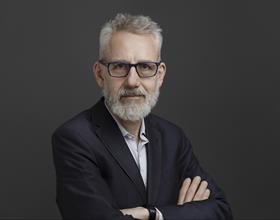In association with

An on-demand version of this webinar is available.
The healthcare sector, like every other, has been caught up in the wave of enthusiasm around AI, and the NHS is certainly embracing the idea. The potential is exciting: more productive teams, large-scale data analytics, quicker actionable insights, more personalised care pathways, and better patient outcomes.
Experienced healthcare leaders know that success depends on much more than the technology itself. The environment in which it’s deployed is, if anything, more important. Trusts may lack the resources, in-house skills, and supporting infrastructure to convert aspirations into reality. Faced with a perception gap between what’s possible and what’s actually doable, it is easy for inertia to set in, and for business to continue as usual.
In this webinar, in association with Amazon Web Services, we invited a panel of health data experts to help trusts understand the realities of AI. Guests discussed how to identify innovative, low-risk use cases that increase productivity while meeting requirements around ethics, data protection and clinical safety.
Viewers will leave with a greater understanding of how emerging technologies like GenAI can help their organisation do more with limited resources and how they can get started.
To access the recording, visit here and click play.
If you had previously registered as a viewer for the event, you will be able to view the recording immediately.
If you have not previously registered, you can do so here to get access to the recording.
Panellists

Dr Matt Howard, head of healthcare data science, Amazon Web Services
Matthew is head of healthcare data science at Amazon Web Services, focused on how data, machine learning and artificial intelligence can transform health systems and improve patient outcomes. He leads a team of applied data scientists who work with customers to develop generative AI-based healthcare solutions, with projects including multimodal cancer patient stratification, application of generative AI to automate literature review, and development of generative AI-based medical information systems. Matthew sits on the AWS international healthcare leadership team and co-developed AWS’s global healthcare go to market strategy. He holds a PhD in Biological Sciences from Imperial College London.

James Kinross, senior lecturer in colorectal surgery, Imperial College London
James Kinross is a reader in colorectal surgery and a consultant surgeon at Imperial College London. His clinical interest is in minimally invasive and robotic surgery for colorectal cancer. He has been funded through the NIHR AI programme and UKRI to develop AI technologies for autonomous systematic review, and he is Co-I on the EPSRC (£6m) ROBOGAST project for the creation of autonomous robotic endoscopies. He has also co-founded an AI surgical navigation start up (Medical iSight).

Alastair McLellan, editor, HSJ — Chair
Alastair McLellan has been the editor of HSJ, mostly, since 2002. He has overseen the launch of the award-winning HSJ Intelligence and HSJ Solutions and the move to make HSJ a purely digital service. Under Alastair’s leadership HSJ has been named specialist information service of the year three times since 2010.

Andi Orlowski, director, Health Economics Unit
Andi is a health economist and director of the Health Economics Unit, an NHS consultancy team which supports health organisations locally, regionally, and nationally. Andi is also a senior advisor for NHS England and the World Bank and provides expertise in population health management, non-communicable diseases, prevention, and data analytics.
Specialising in population health analytics, health inequalities, and impactibility modelling Andi lectures at and is pursuing a PhD at Imperial College London. Andi serves as president of AphA, and is vice-chair at the Healthcare Costing for Value Institute at the HFMA.

























